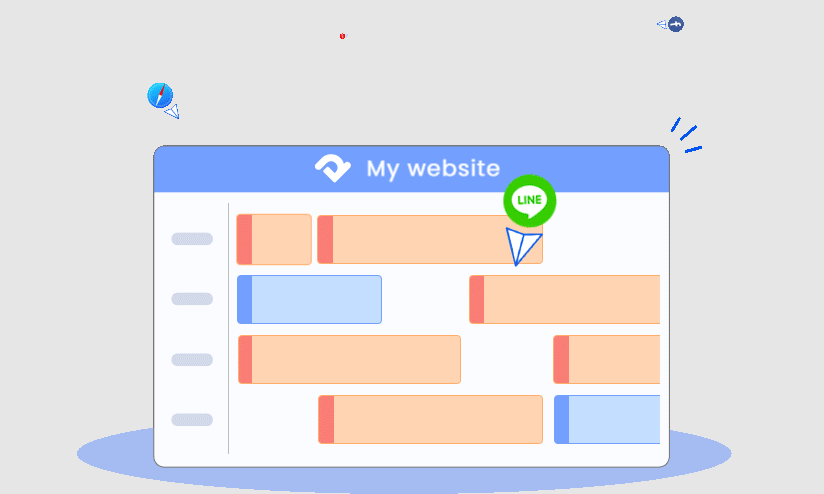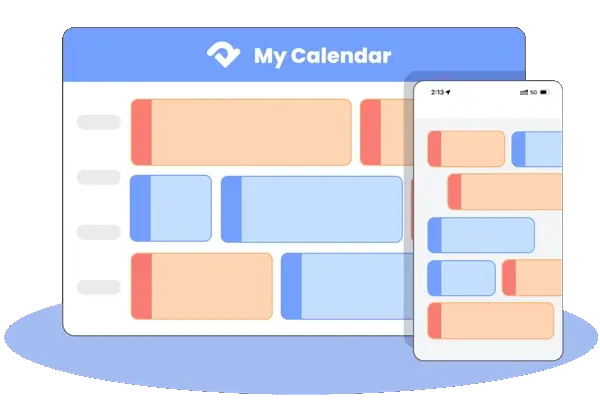With so much competition in hotels, many want to rely less on third-party booking sites and keep more money themselves. A hotel’s own booking website helps it do this. It lets guests book rooms directly with the hotel instead of using online travel agencies (OTAs). Knowing how these sites work helps hotels earn more money and build better guest relationships.
What Is a Direct Booking Website?
A direct booking website is the hotel’s own site where guests can book rooms without using third-party platform. It shows which rooms are open right now, gives details about the rooms, lists prices, and lets guests pay online. Unlike sites like Booking.com that charge the hotel a fee, this website lets the hotel handle the booking themselves and talk directly to the guest.
Guests can book directly through the hotel’s website, app, or even by phone or email. But the website is the most important way because people anywhere in the world can use it, and it often connects to a system that handles bookings automatically.
How Does a Direct Booking Website Work?
A direct booking website isn’t just an online menu. It gives guests the full booking experience they’d get from sites like Booking.com, but lets the hotel run the show. The heart of it is the booking software. This tool keeps track of open rooms, takes reservations, and safely handles payments.
Here’s how it usually works when someone books directly:
- The guest looks through room types, features, and prices.
- The software shows which rooms are actually open right now and what they cost.
- The guest picks their dates, checks the details, and pays securely.
- Right after payment, they get an automatic confirmation email.
The booking software also connects to the hotel’s property management system. This updates which rooms are taken, stops double-bookings, and keeps everything running smoothly.
Why Are Direct Booking Websites Important for Hotels?
Direct booking websites provide significant advantages that influence both hotel profitability and guest satisfaction.
- Higher Profit Margins: Hotels save on costly commissions (which can be as high as 25%) typically charged by Online Travel Agencies (OTAs), allowing them to retain a larger share of their revenue. These savings can be reinvested into marketing, property improvements, or guest experience enhancements.
- Enhanced Guest Experience & Loyalty: When guests book directly, hotels get their details. This means you can send personal offers, answer questions faster, and make their arrival smoother. Satisfied guests will also choose your hotel next time
- Brand Building & Control: A direct booking website allows a hotel to promote its own brand, highlight unique selling points, and offer exclusive deals or loyalty programs not available on other platforms. This helps to strengthen brand identity and encourages guests to become loyal customers.
- Data Ownership: Unlike with OTA bookings, hotels own the valuable guest data from direct reservations. This information can be used for effective marketing campaigns, to understand guest demographics, and to make data-driven decisions for business growth.
- Greater Flexibility: Hotels have full autonomy over their pricing, policies, and special offers. They are not limited by the rules or algorithms of third-party platforms, giving them the freedom to manage their business on their own terms.
Direct Booking vs OTA Bookings
It’s important to see how direct booking stacks up against using sites like Booking.com. While those third-party sites get you seen, they have real problems that your own website solves.
- Cost and Profitability: The most obvious difference is the financial one. Third-party platforms charge substantial commissions, often ranging from 15% to 25% or even more. This cuts directly into your profit margin. With direct bookings, the only costs are your own website maintenance and booking engine fees, which are typically a small fraction of what you would pay in commissions. This allows you to retain a much larger percentage of your revenue.
- Guest Data and Communication: When a guest books through a third-party platform, that platform owns the guest’s data and controls communication. You are often limited to a chat interface, unable to collect valuable information like email addresses for future marketing. With a direct booking website, you own all the guest data from the moment they book. This allows you to build a comprehensive customer database for email marketing, loyalty programs, and personalized follow-up communication.
- Brand and Guest Relationship: On Third-party platforms, guests think they’re their guests, not yours. Your own website changes that completely. From the first click, guests deal directly with you. You control how your hotel site looks and sounds, making sure they remember your name. This personal touch makes guests more likely to come back and tell friends about you.
- Control and Flexibility: Third-party platforms have strict rules and policies on pricing, cancellations, and guest communication. Your hands are tied. With your own booking website, you call the shots. Set your own cancellation rules, create special packages, add extras, and change prices whenever you want. This freedom lets you run your business your way and adjust when you need to.
Future Trends in Direct Bookings
Technology is changing how hotels book directly. Mobile-friendly sites are now common, making it easy for guests to book on their phones. AI helps suggest hotels that fit what people like, and booking experiences are becoming more personal. Hotels also use chatbots to help guests book faster and answer questions during the process.
With metasearch sites like Google Hotel Ads, hotels can show their live prices and open rooms. This brings more people to book directly with the hotel. It shows why hotels need a strong direct booking plan, even while working with online travel agencies.
Personal touches matter more now. Services like custom meal choices on flights show how tech tailors experiences. For hotels, this means using data to offer what guests really want, building loyalty.
Conclusion
A direct booking website is more than a reservation tool—it is a revenue driver and a brand-building asset for hotels. By integrating a robust booking engine and offering a user-friendly experience, hotels can attract more direct bookings, improve profitability, and strengthen relationships with their guests.

